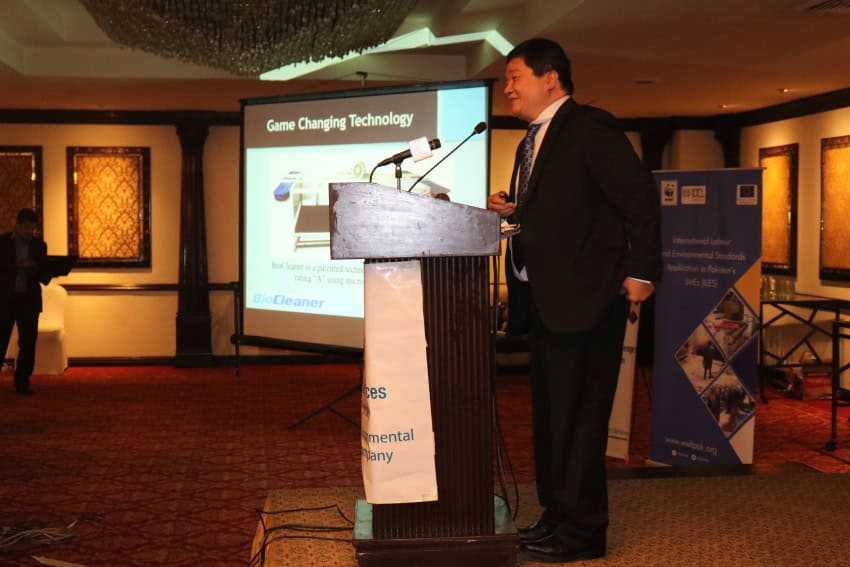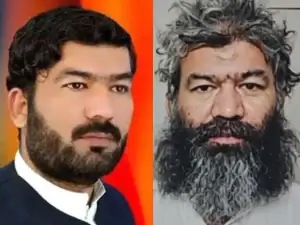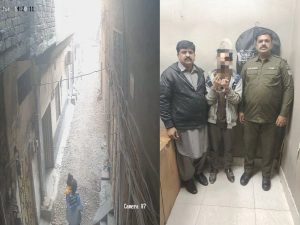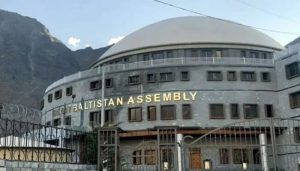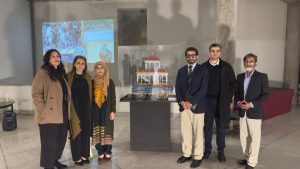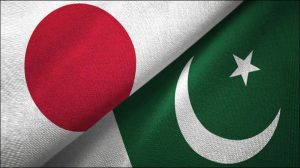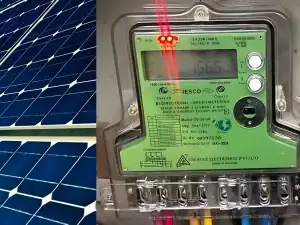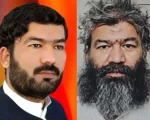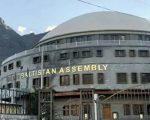LAHORE – WWF-Pakistan, under its project International Labour and Environmental Standards Application in Pakistan’s SMEs (ILES), funded by the European Union, and in collaboration with Water Care Services Pakistan, organized a day-long international conference on 21st Century Water Challenges and Industrialization.
The conference focused on the current water and wastewater challenges being faced by Pakistan with emphasis on innovative, cost-effective and nature-based treatment technologies. Unfortunately, Pakistan falls below the threshold of a water-stressed country as water scarcity is not just a looming but an impending problem. Per capita, water availability is currently only 930 cubic metres per annum as compared to 5,140 cubic metres in the 1950s.
Moreover, rapid urbanization and industrialization are negatively impacting the quantity and quality of water resources in the country. Another challenge highlighted was the urgent need for commercially viable and economically feasible solutions for wastewater treatment as water from municipal, agricultural and industrial sources is not only degrading but also contaminating the quality of naturally available ground and surface water, creating serious health risks.
Sohail Ali Naqvi, Manager Freshwater Programme, WWF-Pakistan discussed how water stewardship can play a positive role in the water management of the country. He also emphasized on strengthening linkages of the government with all relevant stakeholders to promote pragmatic and prompt water stewardship. Moreover, he emphasized that the EU funded ILES project is assisting the textile and leather sector to adopt cleaner production technologies. According to Naqvi, reducing pollution at the source or during the production process is a more cost-effective and practical solution as compared to curtailing the problem afterwards.
Eros Kaw, CEO, BioCleaner Technology USA presented his patented technology, which uses microbes to treat water efficiently. He elaborated that BioCleaner provides an eco-friendly solution that can help treat wastewater so that it can be reused within industries and elsewhere (except for drinking purposes). The most innovative feature of this technology is that it does not require to be fed with bacteria constantly. Rather, a single batch of bacteria can last for as long as 20 years within the system.
Maheen Malik, Country Coordinator, Alliance for Water Stewardship also talked about the urgent need for collective action pertaining to water management. She elaborated that as water is a shared resource, water management not only entails working within one organization’s geographical boundary but should transcend conventional boundaries and borders in a uniform and transparent way. She also apprised the audience about the Alliance for Water Stewardship Standard that helps major water users make their process sustainable through widespread stakeholder engagement and integrated water resource management. She proudly announced that Pakistan is the first country in the world that is implementing the given framework in the textile sector with the assistance of WWF’s ILES project.
The conference was attended by a diverse group of participants including industrialists, researchers, academics and government officials who actively participated in it as speakers and participants.

